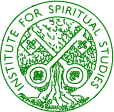
|
|
On Reading the Bible |
|
Fr Carlos Mesters gave a seminar at the Institute for Spiritual Studies on Tuesday the 6th of June, 2006. Carlos is a Carmelite friar and renowned teacher of the study of the Bible. Born in the Netherlands, he has taught at the Ecole Biblique in Jerusalem, and has for fifty years worked with the people of Brazil, where he teaches Bible and works for justice and peace. People have different motivations for reading the Bible. Some read the Bible just to see what's there. Others want to feel the beauty of the peotry. Some enjoy the anthropological views of old cultures. Carlos says: You have to know what you want, to read the Bible. If you know what you want to find, you will find it, and you will more than likely be surprised. We can read it like an old book, but all the time we read the Bible to find what we need now. We go throught the text to learn about the problems we have, to find what the theologian Rudolf Bultmann calls our own sitz im Leben. In oppressed situations, this discovery of others who are oppressed, as found in the Bible, brings life, identification, meaning. You can find in a psalm or passage what you are looking for; you find yourself saying, "I could have written this song." We need to link life to the Bible, not the other way around. The problem with fundamentalism is that it ignores the life lived. Rather, it expects, even requires, only one interpretation of the Bible to suit all situations. The first book God created is Creation itself. The second book is the Bible, written by God as an instrument for understanding the word of life. St Augustine says, "God will give back the eye of contemplation." If you read alone, you are alone; by sharing you discover more. This is how things work in community. Carlos says: I have found that the Brazilians I work with have a better undersatnding of Bible through community than my educated friends back home in Holland. In Holland there isn't community that can talk that way. The Bible helps us discover the word of God in the world. The Bible illuminates life. Carlos spoke about three factors that, when working together, make for greater understanding and insight. The first is the connection with our own reality; we must know our reality and be ready to bring that reality to bear in our reading and discussion. The second factor is the Bible as a means to meaning. The third is the community talking together. In community we discover things in the Bible. There is a multiple enrichment, a common sense of faith. The Emmaus story (Luke 24, vv. 13-35) is used by Carlos as an illustration of the Jesus method of teaching and learning together. Two of the followers are going to a village outside Jerusalem on the Sunday following the crucifixion. They are talking. "Jesus himself drew near, and went with them." He listens, asks questions, wishes to hear what it is that they are speaking about. They invite him in for a meal, and it is only when he breaks bread that they know who it is: "their eyes were opened, and they knew him." So it is with reading the Bible and in our learning and teaching. The revealed method is to come near, to come together, to walk side by side, to listen, to ask questions, to observe, to be hospitable to others, to invite further. We share, then go out and give this to others. If you don't believe in testimony, it is difficult to believe in God. Testimony speaks from other persons. Then, as in Emmaus, we 'break the bread', we share Christ. The Powers of this world can kill, but only that and no more. In the bigger story, characters like Pilate and Herod operate by threat, so therefore don't open your mouth! But Pilate, symbol of the Powers, cannot make life again. This is why Jesus is more powerful than the Powers — He rises again and can raise again. Working in basic Christian communities, Carlos observes daily the hard history of oppresion in Latin America, brought about by the European arrival and hegemony. The method of mutual learning, as illustrated in the Emmaus story, was not used by the invaders after 1492. Instead, all they knew to do was to speak, speak, speak at the people they overran. After five hundred years it is the slave blacks, Indians and other poor people who are learning the method of Jesus, as revealed on the road to Emmaus. We use the Bible to defend the life of the people. Reading the Bible is not about us telling them or you telling me: it is about everyone talking to everyone, equally.
This site is hosted by St Peter's Eastern Hill,
Melbourne, Australia. |